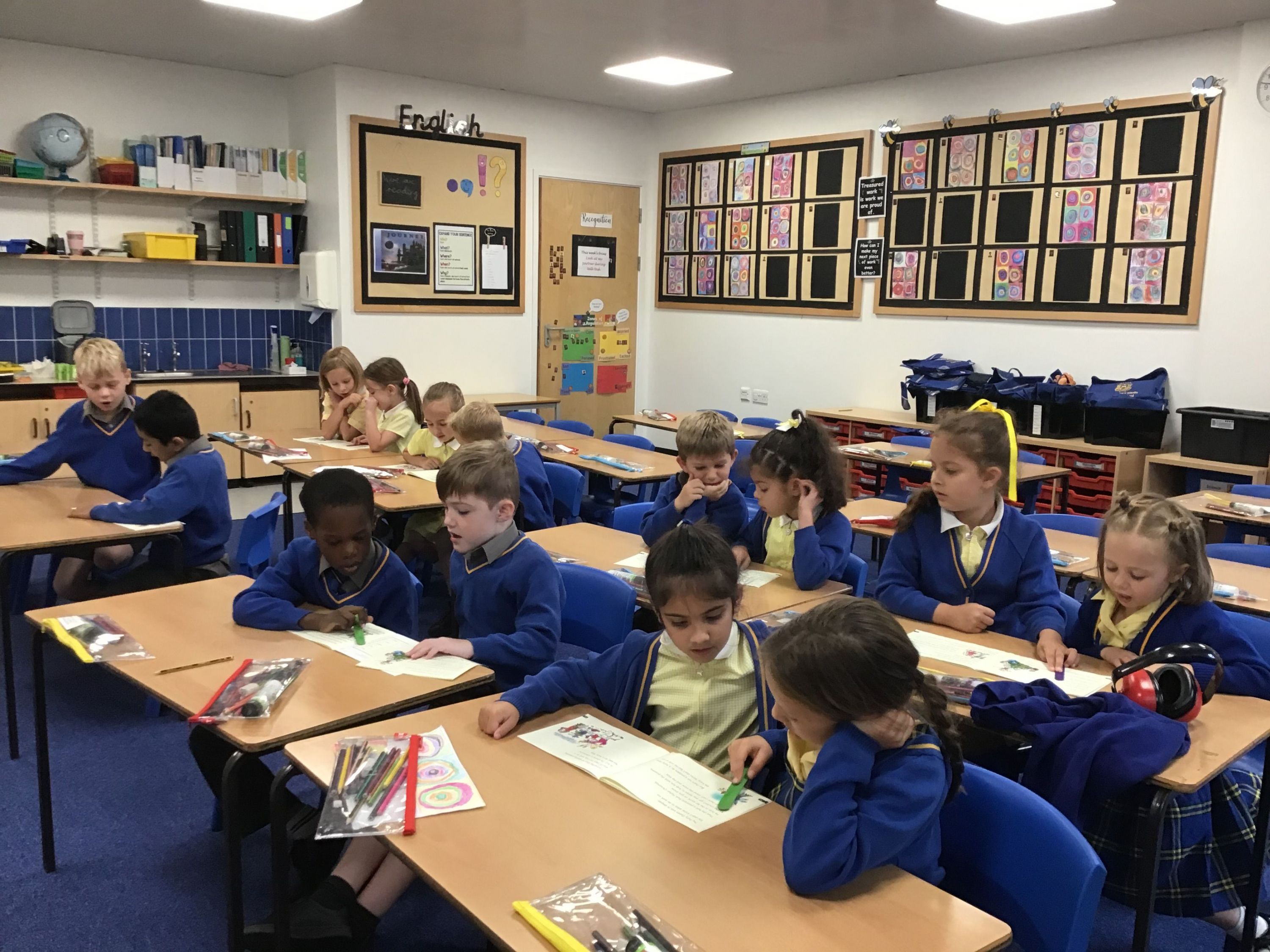Reading
Reading Intent
We place a huge importance on learning the skills of reading, developing both decoding and comprehension in partnership. We want all children to become confident and skilled readers with a lifelong love of books. It is very important to us that children are exposed to a range of high quality literature above their reading ages which challenges their existing levels of vocabulary and understanding.
Reading Implementation
Early Reading (Read Write Inc):
Becoming an accomplished reader is underpinned by a strong start in early reading. Our goal is for each and every child at the Marist to learn to read as quickly as possible.
Phonics (taught using Read, Write Inc.) is the beginning of our children’s journey towards mastering reading. The RWI sessions take place every day, as the pace and consistency of the programme is a key element to developing reading skills for all children.
Our ultimate aims and objectives within the Read Write Inc. programme are for the children to be able to learn and apply sound blending skills and to learn to segment words in order to become skilled and confident readers. Children also learn to read and spell words that do not conform to regular phonetic patterns (high frequency words- red words) and decode both fiction and non-fiction texts through discussion, performance and teacher led activities.
Starting from the very first weeks of school, we teach phonics every single day to ensure success. Children are grouped according to their phonic ability so that every child makes rapid progress and any children falling behind are quickly identified. Children take home book bag books which are based on the sounds they already know and the ones they are currently learning. They practise reading their decodable books until they can do so with fluency and understanding.
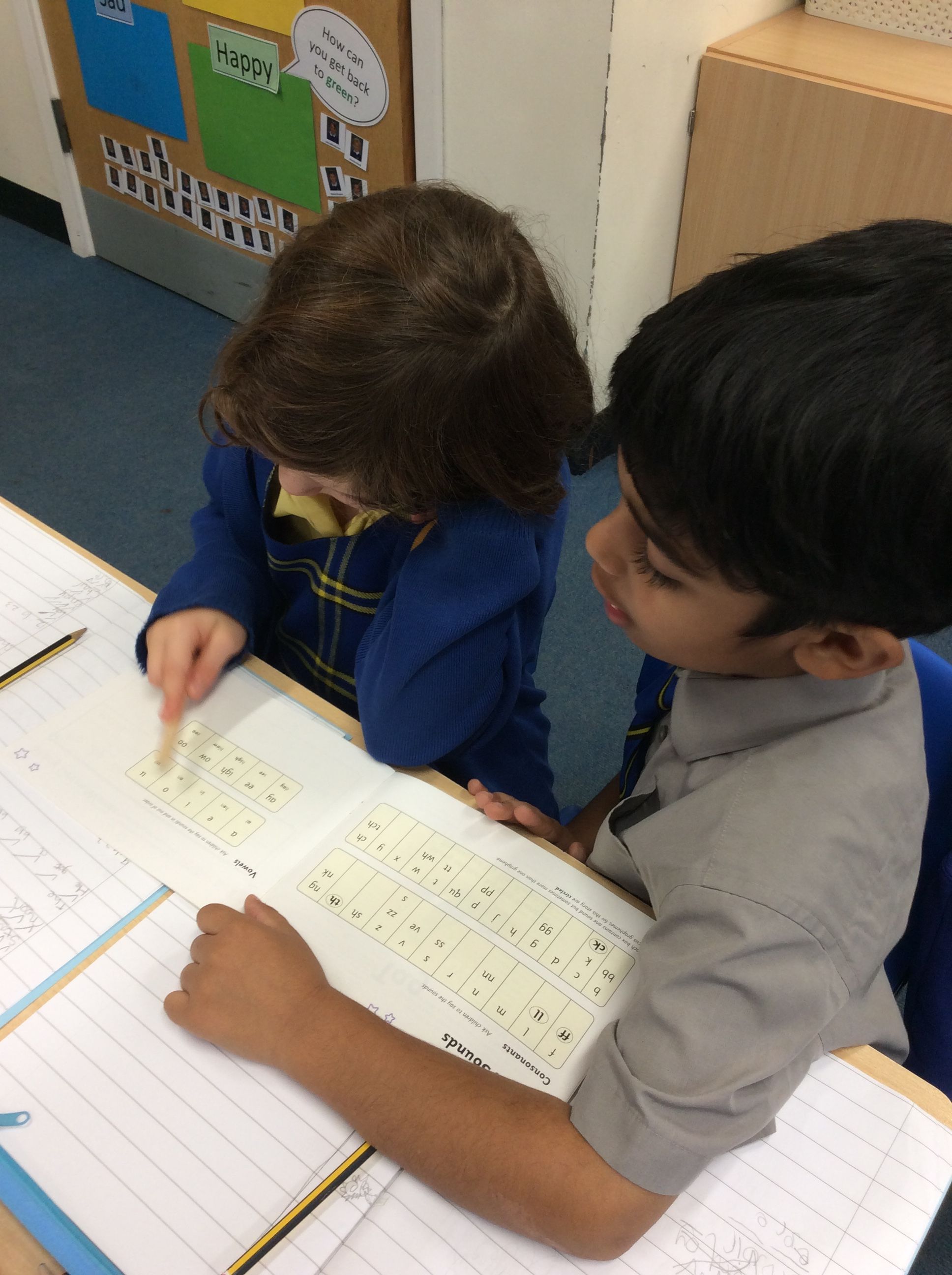
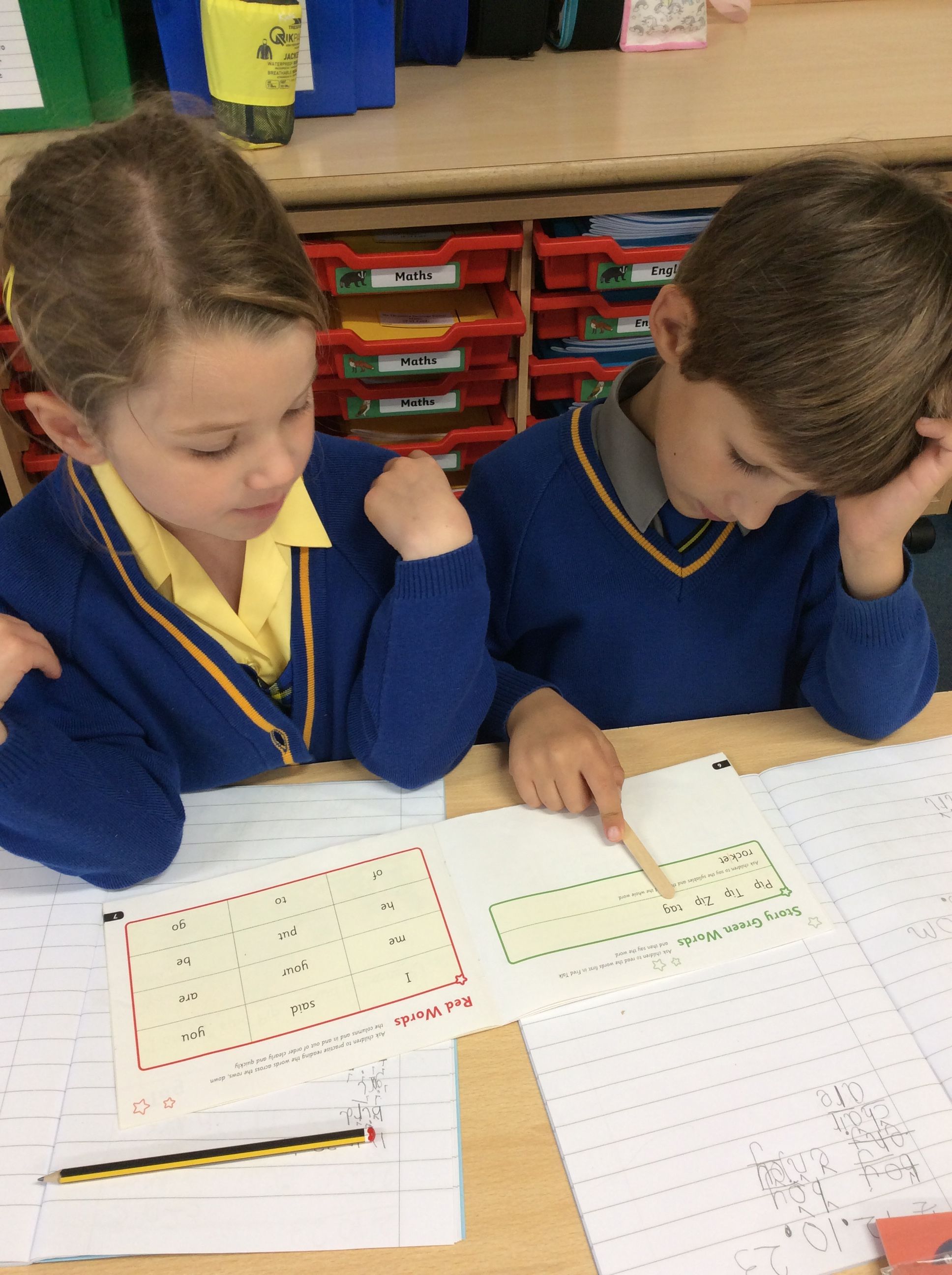

PM Benchmarking and beyond:
When the children know all their sounds and tricky words, they move onto our book banded books. These include a wide range of fiction and non-fiction books and the use of the PM benchmarking ensures that the children read at the sufficient level of challenge.
Once the children have completed these book banded books (copper level) they can then read from the school Challenge Books which are monitored by teachers. Children are heard to read in school on a regular basis and a record is kept of home and school reading in the pupils’ reading journals.
Master Readers: 'Excellence after Phonics'
Our children in Year 2-6 access daily reading through a programme called 'Master Readers'. This programme transitions the children from Phonics (EYFS) into guided reading (Y2-6). It aims to improve fluency, help pupils become skilled readers, leading to children developing strong comprehension skills. Children need to be able to read fluently, understand vocabulary, build their knowledge and read widely. This results in strong comprehension skills. The programme follows a set weekly routine which enables the children to develop understanding and skills over time. The weekly cycle supports pupils in developing their reading ability across the week. Pupils have a 30-minute lesson to give them a daily opportunity to become true readers.
Monday- Whole class shared reading of chosen text
Tuesday- Book Club
Wednesday- Modelled comprehension
Thursday- Independent comprehension
Friday- Review and respond
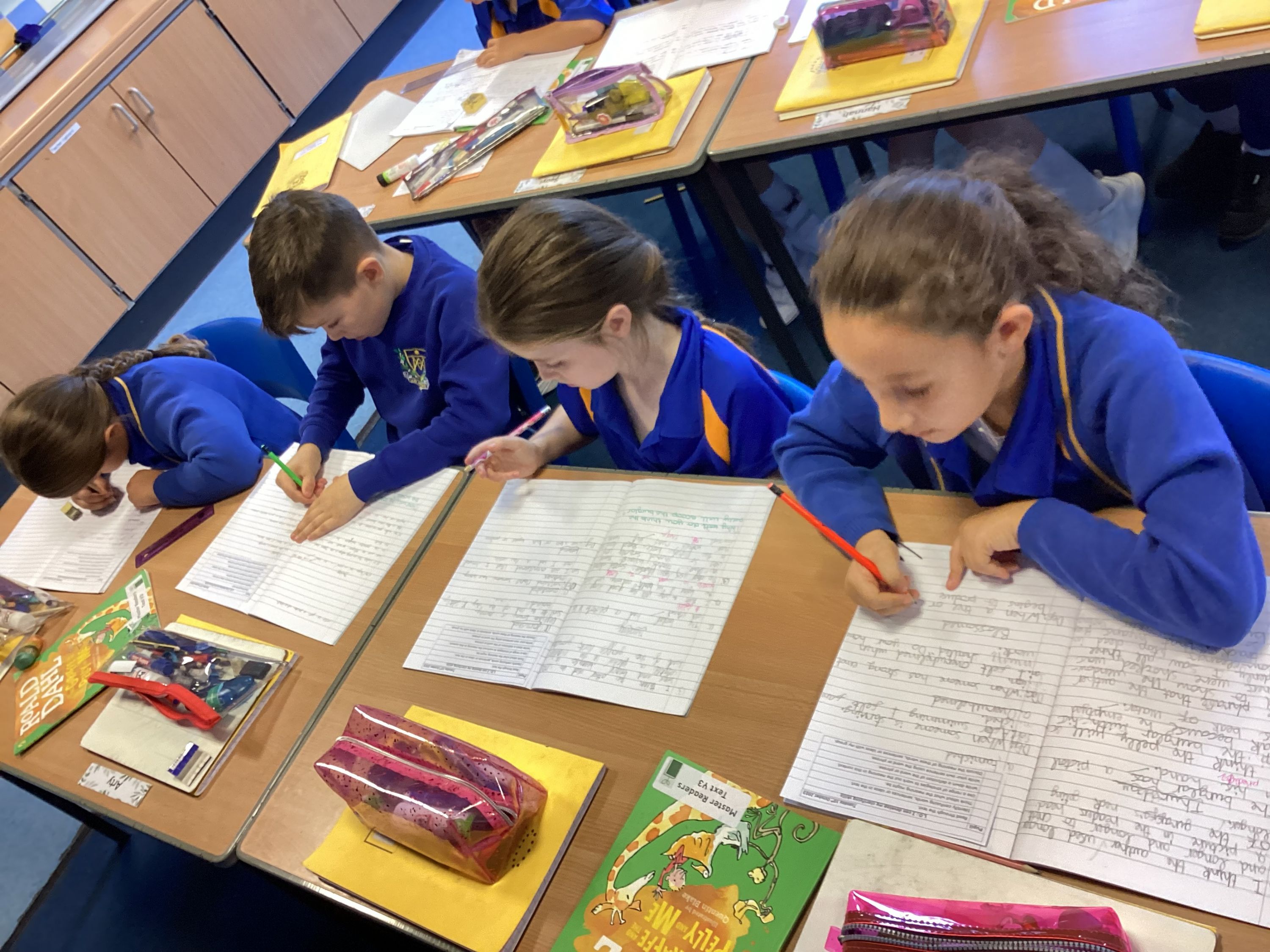
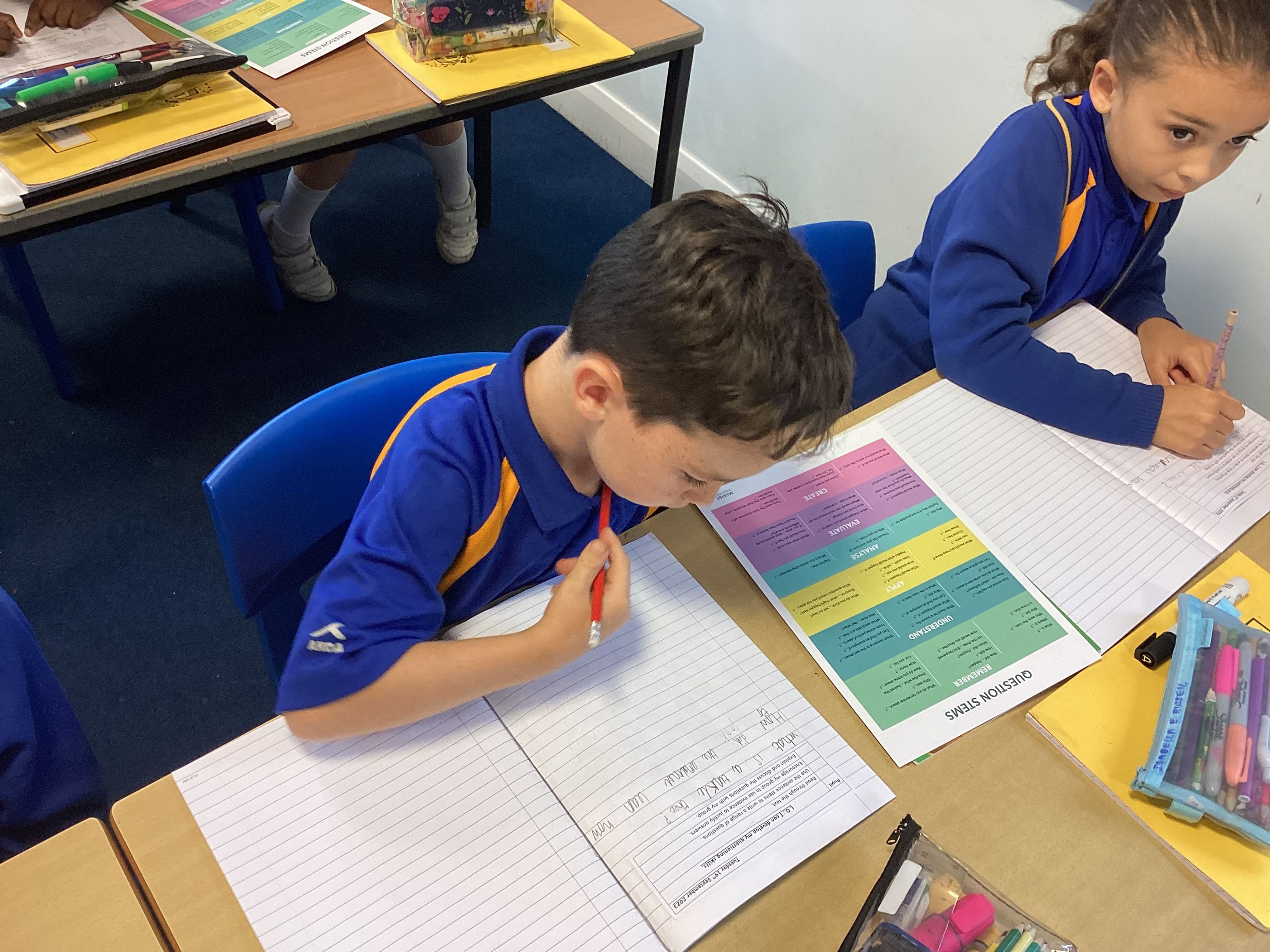
Reading at Home:
At the Marist, we recognise children need constant practice to become established, fluent readers and therefore place a strong emphasis on reading at home in addition to school. All children, from EYFS to Year 6, are expected to read at least four times a week and record their reading in a reading record book. Parents are encouraged to support children in this. Teaching staff monitor children’s reading habits and book choices, working with parents to inspire our pupils to become great readers. In parallel with this, we celebrate children’s reading through sharing stories, partner classes, assemblies, awards and World Book Day. We invite parents and grandparents into school to read for the children and hold regular stay and read sessions. We also hold regular information sessions on Phonics and early reading beginning when parents first visit the school with their children.
Recommended book lists for each age group:

